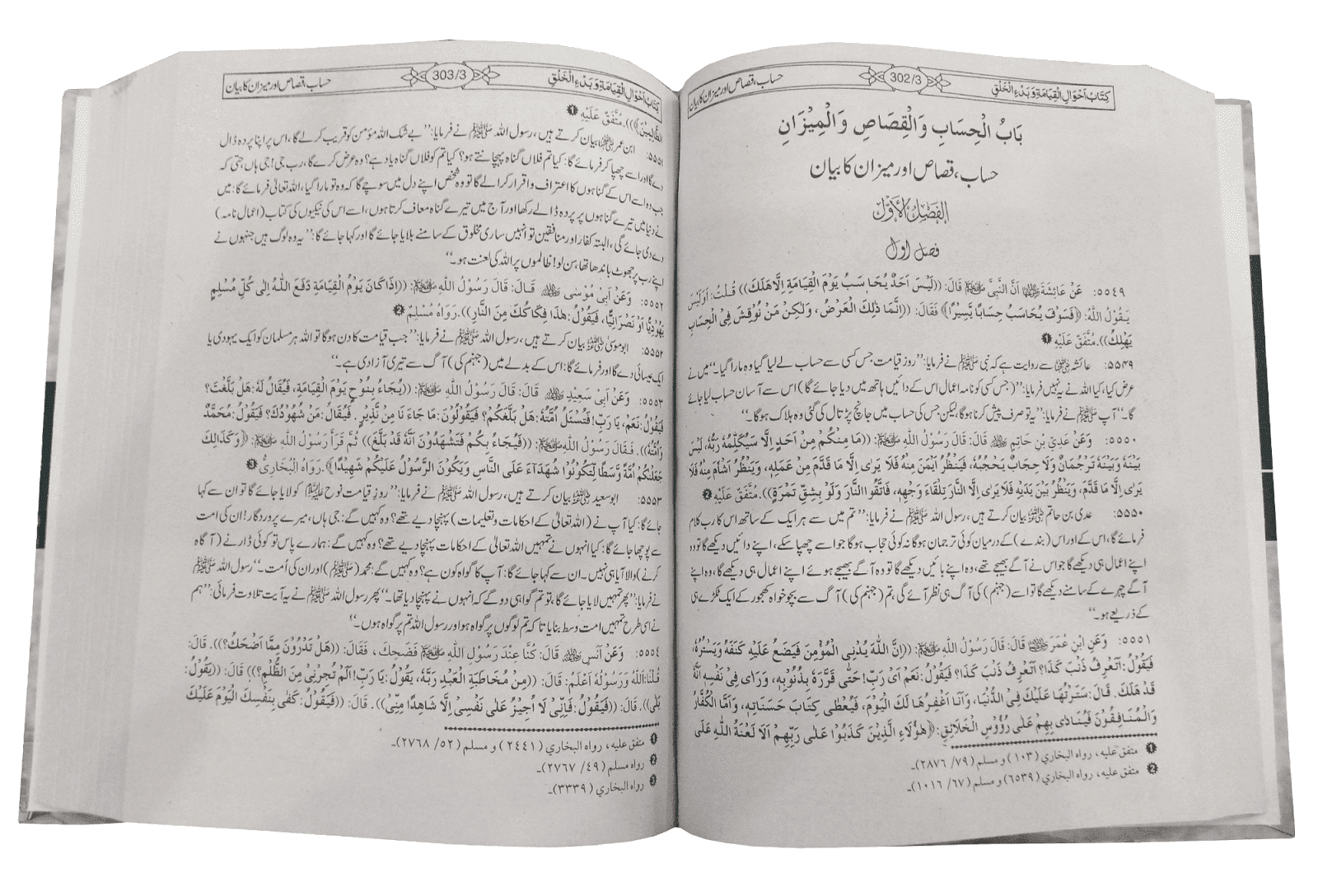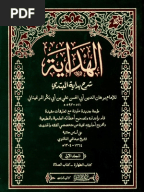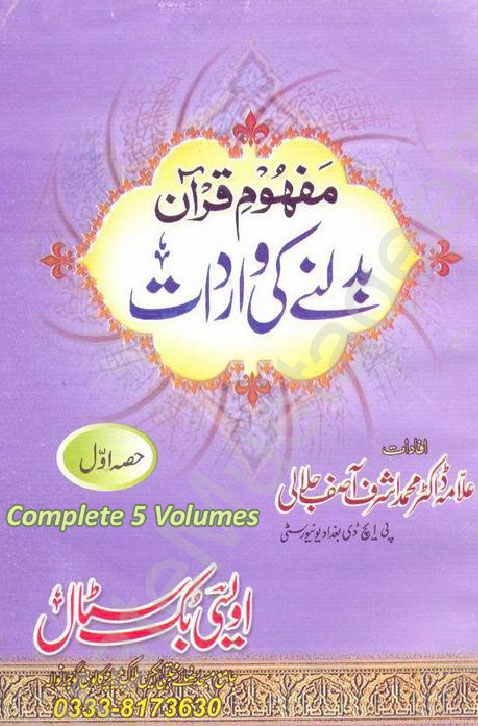- Mishkat al-Masabih - Urdu - Vol. 1/3 - مشکوٰة المصابیح اردو ترجمہ جلد اول Info Center. External Islamic Resources Important Dates Mohra Sharif Map Utils Visitors Counter. This month 8527.
- This Hadith is transmitted via the chain of Yahya Ibn Sa’id al-Ansari from Muhammad Ibn Ibrahim at-Taymi from Alqamah bin Waqas al-Laythi from Umar bin al-Khattab (رضى الله عنه) in Sahih al-Bukhari, Sahih Muslim and in other books of hadith and it is hadith which is Sahih Gharib and is also Khabar al-Wahid. Khabr al-Ahad) 2.
- Mishkaat Shareef - Mishkaat ul Masabih - Arabic with Urdu Translation and Explanation Mazahir-e-Haq: Explanation by Allama Nawab Qutb-ud-Din Khan Dehlvi مشکوٰۃ شریف مؤلف: محمد بن عبداللہ اردو ترجمہ و شرح: حضرت علامہ نواب قطب الدین خاں دہلوی (رح) Application Features: - Mishkaat Shareef - Mishkaat ul Masabih - Arabic with.
| Author | Muḥammad ibn ʻAbd Allāh Khatib Al-Tabrizi |
|---|---|
| Original title | مشكاة المصابيح |
| Language | Arabic |
| Genre | Hadith collection |
| Part of a series on | ||||||||||||||||||||||||||||||||||||||||||||||||||||||||||||||||||
| Hadith | ||||||||||||||||||||||||||||||||||||||||||||||||||||||||||||||||||
|---|---|---|---|---|---|---|---|---|---|---|---|---|---|---|---|---|---|---|---|---|---|---|---|---|---|---|---|---|---|---|---|---|---|---|---|---|---|---|---|---|---|---|---|---|---|---|---|---|---|---|---|---|---|---|---|---|---|---|---|---|---|---|---|---|---|---|
|
Mirqat Al Mafatih Sharh Mishkat Al Masabih (11 Vol set) URDU مرقاة المفاتيح شرح مشكاة المصابيح The answer to your request will be sent to your email address.
Mishkat al-Masabih (Arabic: مشكاة المصابيح)(English translation: A Niche for Lamps) is an expanded version of Al-Baghawi's Masabih al-Sunnah by Muḥammad ibn ʻAbd Allāh Khatib Al-Tabrizi. Khatib Al-Tabrizi died 741 AH (1340 or 1341 CE)[1] rendered this version of the original text more accessible to those not having an advanced knowledge of the science of hadith.
Description[edit]

It contains between 4434 and 5945 hadith, divided into 29 books and is considered by Sunni scholars an important writing. Al-Tabrizi added 1511 hadith to the hadith contained in the collection Masabih al-Sunnah. Al-Baghawi classified many hadith as authentic when at times Al-Tabrizi did not agree. Al-Tabrizi expounded on the labels he placed on the hadith and re-classified many of them. He added a third section to Masabih al-Sunnah, which was already divided in two parts by Al-Baghawi. Al-Baghawi did not mention the isnad of the hadith he collected, Al-Tabrizi mentions the source from where the hadith is originally found making the text more reliable. An example of a hadith from Mishkat al-Masabih is as follows: 'He is not a perfect believer, who goes to bed full and knows that his neighbour is hungry.'[2]
Commentaries & Publications[edit]
Many commentries of the book has been written and published worldwide.
- the commentary of Husayn ibn `Abd Allah ibn Muhammad al-Tibi
- Mirqat al Mafatih Sharh Mishkat al-masabih' is a multi-volume work, authored by 17th century Islamic scholar Mulla Ali al-Qari
- 'Mirat ul Manajih Sharh Mishkat al-Masabih', is an urdu explanation authored by 'Hakeem ul ummat Mufti Ahmad Yaar Khan Naeemi'
19 various books on explanation of Mishkat Al-Masabih are available in English, Urdu, Arabic and Bangla at Australian Islamic Library[3]
- Mishkat-Ul-Masabih, Published : Kitab Bhavan (1994)[4]
See also[edit]
- Either: Sunan ibn Majah, Muwatta Malik
References[edit]
| Arabic Wikisource has original text related to this article: |
- ^Zirikli, al-A'lam, p. 6/234.
- ^Mishkat Al-Masabih 2/424.
- ^http://www.australianislamiclibrary.org/mishqat-al-masabeeh.html
- ^'Mishkat-Ul-Masabih'. www.amazon.com. ISBN978-8171510375. Retrieved Apr 30, 2019.
External links[edit]
-:- Adwa al-Masabih Fi Tahqiq Mishkat al-Masabih -:-
Tahqiq, Takhrij, Fawa’id
Shaykh Zubair Ali Zai
Translated & Additional Notes
Abu Hibban & Abu Khuzaimah Ansari
[1] Umar Ibn Khattab (رضى الله عنه) said the Messenger of Allah ﷺ said “Actions are by intentions and everyone will get what they intended, so whoever migrated for the Sake of Allah and His Messenger then he migrated for the Sake of Allah and His Messenger and whoever migrated for this world or to marry a woman then his migration will be for that sake for which he migrated” (Agreed upon)
[REFERENCES]
Bukhari 1, 54, 2529, 3898, 5070, 6689, 6953, Muslim 1907, Imarah 155, Nasai, 2:135 no.3825, al-Ta’liqat al-salafiyyah 2/135, with its wording with the words “for the world” instead of “to the world” as is the case in some of the editions of Nasai.
[UNDERSTANDING FROM THE HADITH]
1. This Hadith is transmitted via the chain of Yahya Ibn Sa’id al-Ansari from Muhammad Ibn Ibrahim at-Taymi from Alqamah bin Waqas al-Laythi from Umar bin al-Khattab (رضى الله عنه) in Sahih al-Bukhari, Sahih Muslim and in other books of hadith and it is hadith which is Sahih Gharib and is also Khabar al-Wahid. (i.e. Khabr al-Ahad)
2. It is established from this Sahih hadith and other evidences that it is not necessary for a hadith to be mutawatir or mashur for it to be accepted, rather Sahih khabar Wahid also constitutes evidence.
Mishkat Shareef Urdu
3. For any action to be accepted it, it has to be based on on the intention, therefore it is obligatory to have an intention for wudu, Ghusl, prayer, fasting, hajj and all other forms of worship. The jurists have an ijma (i.e. unanimous agreement) on this (al-Aydah ann ma’ni as-sihah (1:56) of Ibn Habirah). The view of Imam Abu Hanifah Rahimahullah was an exception because according to him it is not obligatory to have an intention for wudu, Ghusl of Janabah rather it is Sunnah (al-Hidayah ma’a dirayah (1:20)

4. According to the Arabic language intention is intent of the heart, a mindset and Qasd (firm intent) (Qamus al-wahid (p.1730). Imam Ibn Taymiyyah said ”Niyyah (Intention) is a intent of the heart and Qasd and the place of intent and Qasd is the Heart and not the tongue (al-Fatawa al-kubra (1/1). Uttering the niyyah/intention for the prayer with the tongue is not established or evidenced from the Messenger of Allah ﷺ, the companions nor from the great tabi’in and therefore one should abstain from this action of the tongue.
Mishkat Masabih In English

5. For any action to be accepted by Allah it has to be based on 3 conditions,
i. The Aqidah of the individual has to be according to the Quran and Sunnah and the understanding of the Salaf.
ii. The action of the individual should be in accordance with the Quran and Sunnah
iii. The action should only be carried out purely and sincerely for the Sake of Allah.
6. The intent in citing this hadith in the beginning of the monthly journal ‘al-Hadith’ and its understanding is also for the same reason i.e to seek the pleasure of Allah and his forgiveness and not for any wordly benefit.
7. Some scholars have declared this hadith to be a 1/3 of Islam because all actions are associated with,
i. The Heart
ii. The Tongue

iii. The limbs
Since intentions are associated with the heart, this hadith is a 1/3 of Islam.
8. This hadith is a refutation the innovators (i.e the Murjiah) who claim that Iman is only statement of the tongue without belief in the heart. Ayni said “There is a refutation in this (hadith) against the Murjiah and their statement that Iman is testification of the tongue without belief of the heart” (Umdah al-qari (1:34)
9. In Sahih al-Bukhari the hadith of “actions are but by intentions” does not contain the wording “whoever migrated for the sake of Allah and his Messenger then he migrated for the sake of Allah and his Messenger” which is the first hadith (No.1) whereas they are in the later hadith (i.e No.54 and in Sahih Muslim) This evidences two issues,
Firstly:- If one narration mentions some words and whilst another does not, it does not evidence negation of those words.
Secondly:- additional words transmitted by a trustworthy narrator are reliable and subject to acceptance, which do not oppose other trustworthy narrators or those superior in memorisation and preservation.

10. Some scholars have inferred from Imam Bukhari’s methodology, that by presenting this hadith in the book of” The beginning of Revelation” he establishes two issues
Firstly:- Hadith is also revelation
Secondly:- He evidences the beginning of Divine Revelation and the Din of Islam began from Makkah by transmitting this (first) hadith from Imam al-Humaydi al-Makki (who was from Makkah). Likewise and similarly he transmits the last hadith in his Sahih from Abu Hurairah al-Madani (رضى الله عنه) which is also a deduction that Islam was completed in Madinah.
